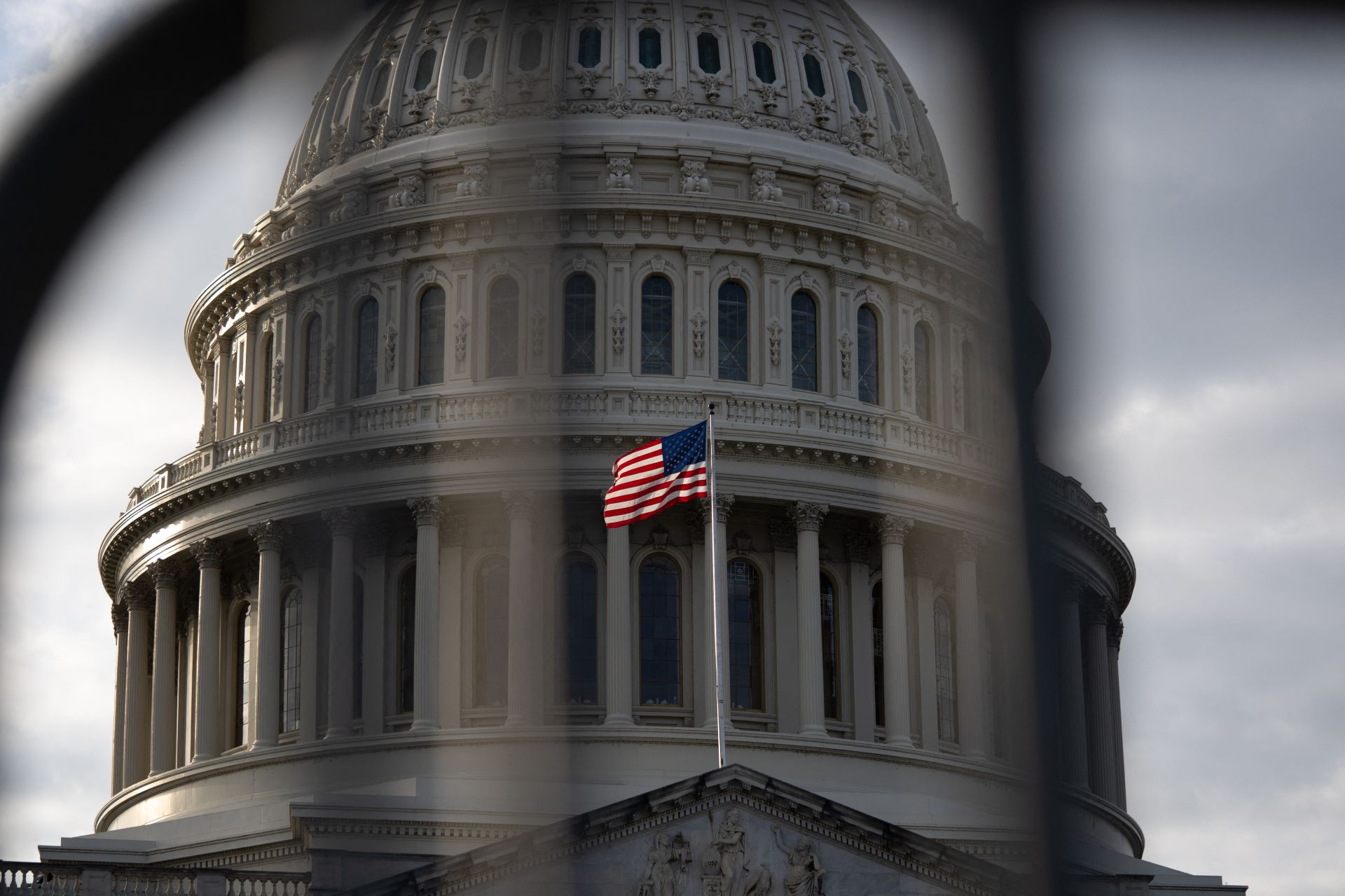- Home
- Middle East
- US Moves Closer to Budget Paralysis After New Bill Fails

©Allison Robbert / AFP
On Thursday, the US House of Representatives largely rejected a new Republican budget proposal aimed at avoiding a paralysis of the federal government, in a stinging defeat that increases the uncertainty before the fateful midnight hour on Friday.
The Republicans, despite having a majority in the lower house, had put this new proposal to the vote the day after Donald Trump and Elon Musk torpedoed a previous agreement negotiated with the Democrats that would have prevented the United States from going into a shutdown just before Christmas.
The future American president had nevertheless given his blessing to the new Republican text, hailing it as ‘a very good agreement for the American people’.
Before the vote, the leader of the House of Representatives, Hakeem Jeffries, had expressed his opposition to the proposal, which he described as ‘not serious’ and ‘laughable’.
And while two-thirds of the votes were required for the bill to pass, it failed to achieve even a simple majority, with 38 Republicans joining the Democrats' “no” vote.
The way forward is now uncertain for the Republican chairman of the House of Representatives, Mike Johnson, who is under pressure from the Democrats to return to the negotiated agreement, and from certain conservative members of parliament who reject any text that does not include a budget cut to compensate for the new aid.
Following the announcement that there would be no further vote on Thursday evening, Mike Johnson promised that the elected representatives would ‘get together and find another solution’.
Time is running out before the fateful hour of midnight on Friday evening.
A paralysis of federal public services would result in hundreds of thousands of civil servants being made redundant, a freeze on a number of social benefits and the closure of some crèches.
An extremely unpopular situation, especially in the run-up to Christmas.
The likelihood of a shutdown was greatly increased when Donald Trump expressed his disapproval on Wednesday of a bill negotiated by the Republicans in Congress with the Democrats, which the President-elect deemed ‘ridiculous and extraordinarily costly’.
The rebound took elected representatives by surprise and gave a glimpse of a Trump 2.0 presidency even before the Republican took office on 20 January. With a style similar to his first term in office, he did not shy away from convention, even if it meant causing a certain amount of chaos.
The future president was not the only one to blast the first agreement.
His ally Elon Musk shouted ‘Kill the text!’ on his social network X in a long series of posts denouncing what he saw as unnecessary expenditure.
On the other hand, the Tesla and SpaceX boss said he supported the Republicans' new proposal, which included a provision that Donald Trump wanted: an extension of the deadline for the debt ceiling to January 2027.
The future president had voiced his vehement opposition to the first agreement, partly because of the absence of such a provision in the text.
The United States is unusual in that it regularly comes up against a legal constraint concerning its credit capacity: the debt ceiling, i.e. the maximum amount of debt it can carry, must be formally raised or suspended by Congress.
A suspension decided in 2023 expires at the beginning of January, and the United States should reach the ceiling in June. On Wednesday, Donald Trump said he wanted to avoid this ‘vicious trap’, which he believed had been set up by the Democrats, when he returned to power.
The White House had come out against the new text before the vote in Congress.
‘Republicans are following the orders of their billionaire donors at the expense of hard-working Americans’, President Biden's spokeswoman, Karine Jean-Pierre, blasted in a press release.
A large number of elected Democrats also denounced the influence of the richest man in the world in the decisions of the Republican camp.
‘Donald Trump and the elected Republicans have bowed down to the real president-elect, Elon Musk’, blasted New York politician Nydia Velazquez.
With AFP.
Read more



Comments